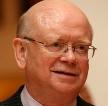Will someone please explain why it is that South Africa has a startling shortage of teachers and nurses?
How is it possible that in a country with the highest unemployment rate in the world, we have a shortage of this magnitude in two vital professions? It is a fact that the country cannot possibly provide an acceptable standard of health care and education if there are thousands of vacancies for teachers and nurses.
The Star published an article recently written by Professor Mncedisi Maphalala and Nhlanhla Mpofu, academics from the Universities of Zululand and Free State respectively. It made depressing reading. South Africa has 410 000 teachers. It will need 456 000 by 2025 according to the Centre for Development and Enterprise but while the country produces 15 000 new teachers each year, it loses between 18 000 and 22 000 teachers who leave the profession.
Clearly, the situation is worsening and is exacerbated by the fact that 32% of teachers are aged 50 and above. Many of these will retire during the next decade.
The position in the nursing profession is equally concerning. In testimony before the South African Human Rights Commission, Professor Mkhululi Lukhele, head of the provincial health department stated that Gauteng hospitals have a critical shortage of nurses and doctors. He said the number of people living in Gauteng had increased from 7 million 10 years ago to 14.5 million by 2019. The health budget had not increased nearly enough and it was this that was causing the crisis in health care.
This view was echoed by the minister of Health, Dr Zweli Mkhize. He was reported in City Press in October as follows: "The primary reason why the Republic [of South Africa] has a shortage of doctors and nurses is the fact that the public health sector budget has not been increasing in real terms for the past 10 years, impacting on the number of staff that can be appointed.
The minister's views were corroborated by the headlines in the media at the same time telling us that there were hundreds of nurses who had qualified but were sitting at home because there were no posts for them.
But it must be understood that it is not just a question of funding at the heart of the crisis. As long ago as 2016, Dr Wilmot James, then the DA shadow minister of health pointed out that we had a total of 270 437 nurses registered in SA but we were short of 44 780, while only 3 595 had enrolled for the nursing degree course.
There is great controversy about whether affirmative action and black economic empowerment have worked. There cannot be controversy about the way to lessen inequality and deprivation: educate our children and young people thereby equipping them for life in a modern economy. Our future depends on it.
What seems to be lacking is any real sense of urgency about tackling the problem on the part of the ministers of Health and Education. South Africa is not an easy country to govern. One understands the many areas of our national life that are in crisis but hand-wringing and bemoaning the situation is an inadequate response. Surely two areas of our national life as critical as education and nursing (both of them honoured and honourable professions), need determined, resourceful and imaginative efforts by those in charge? When there is a national crisis it must be dealt with because leaving things to sort themselves out leads to the sort of mega-crisis that we face over Eskom. That we cannot afford.
Douglas Gibson is a former opposition chief whip and a former ambassador to Thailand. His website is:douglasgibsonsouthafrica.com
This article first appeared in The Star newspaper.

